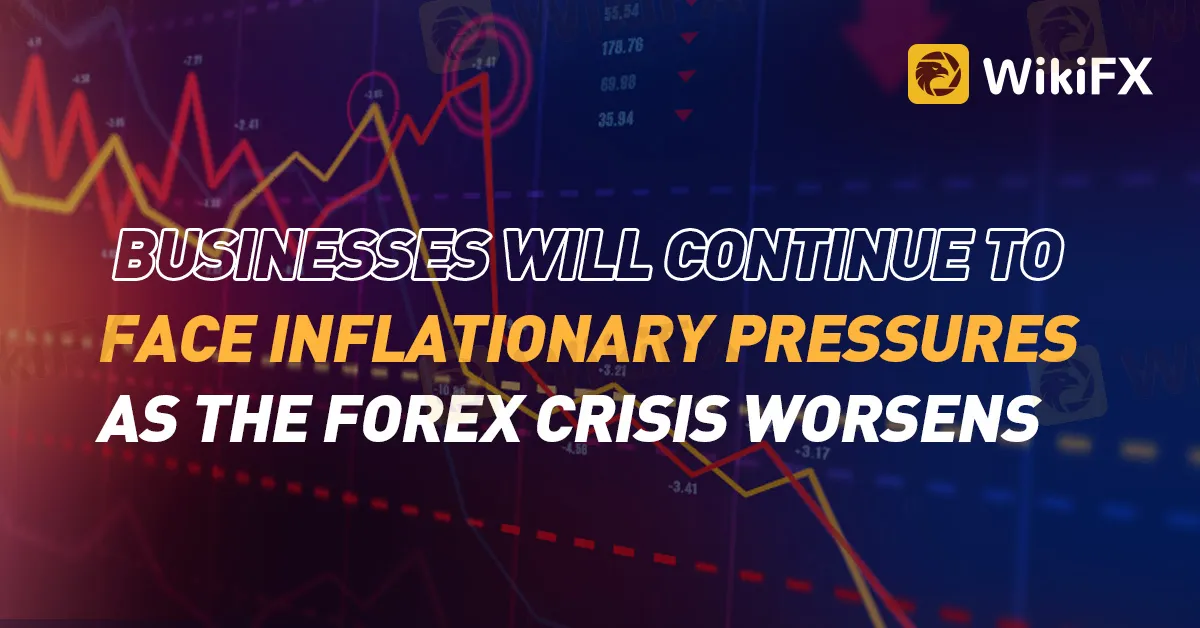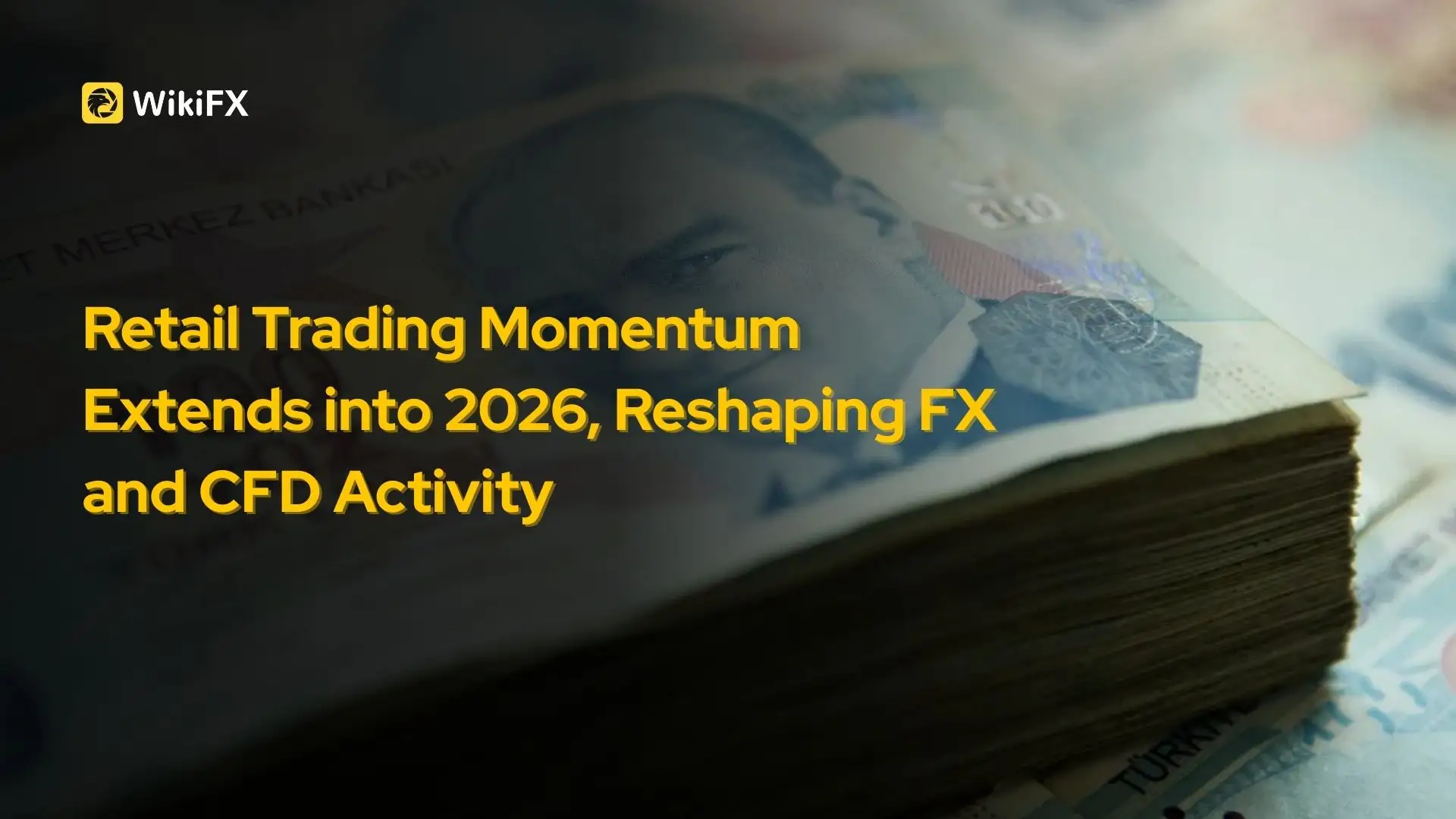WikiFX Officially Launches the “Every Review Counts” Broker Review Initiative!
In forex trading, what truly determines risk is often not market volatility itself, but whether information is authentic, transparent, and fully visible.
简体中文
繁體中文
English
Pусский
日本語
ภาษาไทย
Tiếng Việt
Bahasa Indonesia
Español
हिन्दी
Filippiiniläinen
Français
Deutsch
Português
Türkçe
한국어
العربية
Abstract:There are signs that the foreign exchange (forex) crisis Nigeria is currently experiencing may not soon ease. As a result, the effects of inflation on consumer demand and company costs would likewise persist.

There are signs that the foreign exchange (forex) crisis Nigeria is currently experiencing may not soon ease. As a result, the effects of inflation on consumer demand and company costs would likewise persist.
Despite the National Bureau of Statistics' (NBS) slower-than-expected inflation rate for the month of June, Vanguard MoneyDigest findings and expert estimates indicate that the rate for the following month would be substantially higher.
Despite the effects of harvest season, food inflation is anticipated to increase further.
Positively impacted by the higher global oil prices, Nigeria's foreign reserves increased by 6 basis points (bps) week over week (WoW) to $33.9 billion as of August 2nd, 2023.
However, this event had no favorable effects on the Naira, the local currency.
The Investors & Exporters (I&E) window of the foreign exchange (forex) market saw activity levels decrease 10.1% ($43.7million) to $389.1million at the end of last trading week, while the base currency (the USDollar) increased 0.1% WoW against the price currency (the Naira) to 776.50/$1.00. The base currency (the USDollar) gained 2.3% WoW against the price currency (the Naira) in the parallel market, reaching 890.00/$1.00.
The weekly average increased by 25.7% to N111.9, which is a negative development from the small gap between the two foreign exchange rates seen last week.
The development has the effect of erasing the convergence reached in the early stages of the reform in June 2023 while also undermining the original goal of the CBN's currency market reform as the parallel market premium expands.
Additionally, according to market watchers, the development is brought on by a lack of available foreign exchange resources, which will increase the cost of doing business overall and international input expenses.
The entire value of open contracts at the FMDQ Securities Exchange FX Contract Market remained unchanged at $6.3 billion last week, which put an end to activity there. This was because, as part of its continuing reforms, the central bank decided to temporarily deactivate all contracts with terms of one to twelve months.
Currency dealers said they expect continued pressure on the Naira as a result of persistently inadequate supply as a result of these developments in the foreign exchange market.
As a result, inflationary pressures are anticipated to increase.
additional increase in inflation
Remember that despite price shocks during the month caused by skyrocketing fuel prices, the National Bureau of Statistics, NBS, stunned the market by reporting slower growth in June consumer inflation numbers, coming in at 22.8% year-over-year compared to May's figure of 22.4%.
However, due to limited domestic output and higher manufacturing costs, food prices considerably increased to a 73-month high of 2.4% MoM and a record 25.3% YoY.
Additionally, core inflation pressure marginally decreased to 1.7% MoM, which resulted in an increase in the annual inflation rate to 20.3% in June from 20.1% in May.
Analysts predict that the inflation rate will increase more quickly in July.
The analysts at Afrinvest West Africa, an investment banking group with offices in Lagos, predicted that headline inflation would rise by 2.5% MoM from 2.1% in June and 1.8% over the previous 12 months.This monthly inflation reading suggests a consumer inflation rate of 23.6% annually (June: 22.8%), which would be a rise for the seventh month in a row.
By breaking down the overall performance, we predict strong core pressure in the face of ongoing FX weakening (I&E window: -18.7% MoM to average 769.51/$, Parallel: -7.2% MoM to average 820.38/$) and readjusted retail PMS price.
Therefore, we forecast an increase in the core basket of 2.1% MoM and 20.7% YoY compared to the previous month's print of 1.7% and 20.3%.
Similarly, we anticipate continued high rates of food inflation (2.5% m/m and 25.8% YoY).
We specifically anticipate that the planting season, unfavorable weather, and the lingering effects of agricultural disease outbreaks will mitigate the beneficial effects of the green harvest in the Southern region.
As a result, farm goods inflation should rise to 2.7% m/m from 2.4% in the past.
The suspension of the Black Sea grain deal in Eastern Europe, the passthrough effect of FX pressure, and growing domestic input costs should all contribute to pricing pressure (+2.4%MoM) in July for processed foods.

Disclaimer:
The views in this article only represent the author's personal views, and do not constitute investment advice on this platform. This platform does not guarantee the accuracy, completeness and timeliness of the information in the article, and will not be liable for any loss caused by the use of or reliance on the information in the article.

In forex trading, what truly determines risk is often not market volatility itself, but whether information is authentic, transparent, and fully visible.

Share Your Expertise on What’s Moving the Market.

Strong retail participation in 2026 is driving forex and CFD trading volumes higher, as investors expand beyond equities into macro-sensitive markets.

In a forex market where fundamental and technical factors impact the currency pair prices, volatility is expected. If the price volatility acts against the speculation made by traders, it can result in significant losses for them. This is where a stop-loss order comes to their rescue. It is one of the vital investment risk management tools that traders can use to limit potential downside as markets get volatile. Read on as we share its definition and several strategies you should consider to remain calm even as markets go crazy.
